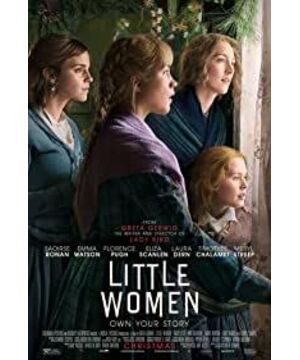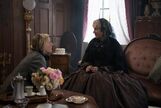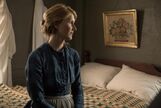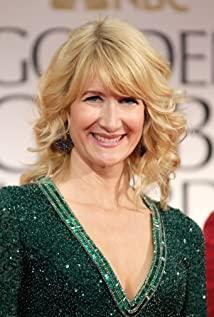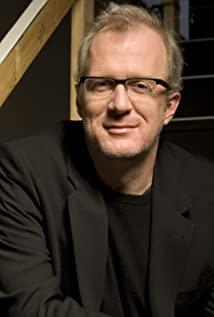The first time I watched "Little Women" during the Chinese New Year's ban, it accurately hit my tastes in all aspects. At that time, I said: "When it is released in China, I will enjoy it on the big screen (or even twice)." I didn't expect this to happen. Fulfilled. At the end of last month, I went to the cinema for a review. First, I felt that I was not enough. Secondly, the cinema may have been closed for more than half a year. There were lines on the screen that were unsightly, so I planned to do it again. The photography of this film is very good, and the Dolby Cinema version was released, but few Dolby Cinemas across the country arranged it for it. I finally found that IGC Paragon Studios lined up in the Real-D Hall. That’s it. A scene, go to see it, the picture quality is bright, this is just enjoyable. After watching it a few times, it is definitely my best American movie of 2019.
One | Two-line script
The film uses a two-line narrative. The main line is the present tense, which extends from the opening heroine Jo’s contribution to the magazine and extends to the future; the secondary line is the past tense, starting from Jo’s memories of seven years ago and moving closer to the present. The two lines are intertwined repeatedly and form intertextuality. For this reason, two colors of cold and warm are used to distinguish between photography.
The unidentified audience thought it was editing, but it was not. Obviously, it was written from the very beginning when the script was written. On the contrary, if you rearrange the whole film in a positive order of time, you will find that there is a lack of logical connection between many bridge segments. It is precisely in the process of two-wire interweaving that the narrative can be established.
Director and screenwriter Greta Gerwig carefully designed this weaving. For example, the first interweaving was from Jo and Friedrich dancing in a bar back to seven years ago when Jo and Meg were going to the dance party, and the second interweaving was from Jo in the train. She fell asleep and turned back to the nap seven years ago. She was awakened by Meg, and she was constantly changing.
Gerwig makes every transition of time and space traceable, organically combining the two lines of the past and the present, reflecting extremely high screenwriting skills. Compared to some viewers who haven't been able to completely clear the two lines after watching it, Gerwig has previewed the whole film in his mind before the film was made.
Two | Polyphonic ending
Did Jo and Friedrich finally be together? Many viewers have such questions. Indeed, this question is very important. If the two are together, it is in line with the ending of the original, but it means that the director accepts Jo's setting of bowing his head to marriage; if they are not together, it deviates from the original, but conforms to the true experience of the original author.
In fact, Gerwig deliberately adopted this kind of obfuscation. In the script, for the last few scenes with ambiguity, Gerwig has repeatedly indicated the words "FICTION(?)" or "MAYBE FICTION", leaving it to the audience to interpret. The respect for the concept of plural marriage is consistent.
But if you start from the director's own position and also consider the narrative logic, it is not difficult to find that the film actually tends to end with "not together". The last scene is that Jo, holding his new book, is determined to look towards the future (note that she does not have a ring on her hand), not a family carnival for her mother's birthday (note that she also does not have a ring on her hand); there is also the previous "love under the umbrella" That scene, both in performance and photography, deliberately imitated the contrived style of old-fashioned romance films, implying its unreality. The director made it clear in the interview: "This is not a story about'boys get girls', but a story about'girls get a book'."
Three | Self-referential
Louisa May Alcott, the original author of "Little Women", is unmarried for life, and Jo in the novel is based on herself. She originally hoped to give Jo an unmarried ending, but was forced to change the ending under pressure from the publisher and readers. Even so, she did not allow Jo to be with Laurie, who had no guesses, but married an older teacher Friedrich.
The director of the film, Gerwig, reproduced the ending of the original while also giving the ending that Alcott hoped for. In the end, Jo and the publisher’s editor bargaining over the ending and copyright ownership are really the finishing touches. This meta-commentary achieves a triple reference: first, the bargaining of the person in the film, Jo, and then the original author. Alcott's bargaining, and then the film's director Gerwig's bargaining, the three female creators of fiction, history and reality are united here. In fact, Gerwig really had a bargaining with the producers about how to deal with the ending. Unlike Jo and Alcott's compromise, Gerwig won.
There is also a self-reference in the film. When Friedrich criticized Jo's early short stories, Jo yelled at him angrily: "You are always just a critic and cannot be a writer. The world will forget that you have lived, but no one will forget Jo March! "This is simply the director's outright provocation to the film critics! Fortunately, film critics gave the film a very high evaluation.
Four | Modern Consciousness
As a classic that has repeatedly appeared on the screen and screen, the latest adaptation from the 21st century should of course incorporate freshness, rather than being stuck on a re-enactment of that era. It is this modern aesthetic taste that refreshes contemporary audiences. The aforementioned two-line narrative is a bold challenge to the conventional adaptation, and many lines also carry a modern sense of non-violation.
When Amy appeared at the beginning of the film, the director compared Amy's traditional realism style with another painter's impressionist style through close-up shots. Gerwig described in the script: "This is the beginning of modernism." It was from that moment. , Amy realized that he could not become a master. (This segment reminds me of Mary Cassatt in reality, who came to Paris from the United States and eventually became a master of Impressionism.)
This contrast between tradition and modernity has been consciously implemented by Gerwig on multiple levels. For example, for the soundtrack, Gerwig's concept for the composer is to mix Mozart and David Bowie together; the costume design also adds a lot of modern elements; the photography refers to the impressionist style, and the scene of the friends playing on the beach is almost like It came out of Eugene Boudin's paintings; and Jo and Laurie's random dance outdoors, which is also ahead of the times.
Five | Feminism
As I said in my evaluation of another masterpiece "Brooklyn" starring Ronan: "The feminist theme works are able to give people strength because their confusion and hesitation, struggle and choice are essentially transcending gender. , But we are ashamed to let men play such a role, and don’t even know how to let men play.”
Last year’s Oscars, my favorite "Rome" and "Favorite", this year’s Oscars, "Little Women" and "Marriage Story" (not counted as non-Hollywood system "Parasites"), coincidentally include feminism. . But I don’t have a special preference or preference for feminist films. It’s because films with male protagonists are generally aphasia on the issue of "male growth". Probably because the men who dominate the world are so strong that they don’t need growth and reflection. .
It is through Ronan's perspective and interpretation that this film once again made me feel the resonance and power. In many cases, in order to pursue your dream (whether it is great or small), you just have to give up and deviate from other things. There will be entanglements, suffering and confusion in the process, and the dream may not be realized, but you always To take the next step in life.
The words spoken by Jo in the film made the strongest voice of feminism: "Women do not only have emotions, they also have thoughts, they also have souls; women are not only beautiful, they have ambitions, and they return Talented. I'm fed up with people saying that love is everything to women."
Six | Multiple Marriage
Director Gerwig's values are undoubtedly feminist, which is fully reflected in Jo. She really doesn’t love Laurie: Before going to New York, when he pursued her passionately, on the one hand, she refused to court in order to pursue her dream, on the other hand, she felt that the two of them had different personalities; after returning home from New York, she felt that He was afraid of being alone and missed him again, but by accident he was already with her sister. It was precisely because she did not catch up with love that she had the inspiration and space to start her creation, which proved her expectation that love and dreams cannot have both.
But Gerwig also gave the film a diverse view of marriage. Contrary to Jo, sister Meg was willing to marry love, settled in poverty, mutual help, husband and child, for this reason gave up her dream of acting, she does not regret it. Before the wedding, Meg said to Jo: "It can't be because my dream is different from yours, it means that my dream is not important." This line is really moving. With Meg's talents and appearance, she could marry a wealthy family. She almost took this step in love with vanity, but she finally followed her heart.
Jo's younger sister, Amy, knew from a young age that marrying a wealthy family was the best way for a woman in that era. She also had a dream of becoming a painter. But she was utilitarian by nature. When she found that her talent was not enough to be a great painter, she decided to give up. Since Europe (Paris) can't stay, she doesn't have to go into the wealthy of London. In the end, the combination between her and her home wealthy Laurie is indeed a true love, but it is hard to say that it does not contain any calculations ("marriage is an economic problem"), but isn't this a common portrayal of real marriage?
Seven | Genius Ronan
The film’s starring Ronan was only 13 years old and won the first Oscar nomination for Best Supporting Actress with "Atonement". In recent years, he has won three Oscars for the three masterpieces of "Brooklyn", "Miss Bird" and "Little Women". Best Actress, such a brilliant achievement is rare among her peers. It is only a matter of time before she wins the Little Golden Man. I love Ronan!
I have always believed that a truly outstanding actor must act like what he does, rather than act like himself in everything, or can only perform a certain type of role repeatedly. Ronan’s roles in the above three movies are completely different, and the audience will not see the shadow of her role in the second film in the role she played in the first film. The only thing these three characters have in common is that they are all sparkling independent women, living in different eras and different regions.
Ronan's performance in this film is remarkable. As the only protagonist, she and all the main characters are in rivalry. Faced with different opponent roles, she appropriately shows her different identities. She is not only a carefree girl in childhood, but also an independent writer in adulthood. She is not only the little sister next to her sister, but also the big sister in front of her sister. She is not only a carefree tomboy, but also a good daughter nestling on her mother.
Eight | Clothing Design
In addition to Ronan's talent and savvy in acting, costume modeling also contributed to the shaping of the character. The film won six nominations at this year’s Oscars, and finally won the best costume design. This is the second time that designer Jacqueline Durran has won the statuette after "Anna Karenina", which is well deserved.
Durran has configured the core colors for the four sisters, Jo is red and indigo, Meg is green and lavender, Amy is light blue, and Beth is brown and pink. Their costumes are also based on contemporary paintings of Pre-Raphaelite, Impressionism and Native American, as well as fashion illustrations, which can be described as a rule to follow.
However, the designer did not completely follow the restrictions of the times, but added a lot of aesthetic appeal of modern consciousness. After all, the original work itself is a fictional novel. After all, the director consciously modified the story with modernity. In terms of clothing modeling, some details that look ahead of the time are actually rationalized interpretations made by the designer after referring to the clothing books and chemical developments of the time.
The costume design of this film is widely praised in the British and American industries, and the designer has indeed done a lot of desk work. Such an excellent design has been complained by some Chinese audiences, accusing it of "no sense of age" and so on, which precisely reflects our conservative aesthetic taste and creative concept, obsessed with the so-called "orthodox", including the plot that deviates from the original. Changes will also be questioned.
Nine | Original soundtrack
The composer Alexandre Desplat, who wrote the music for this film, has won two Oscars for Best Original Soundtrack for his "Budapest Hotel" and "The Shape of Water". Personally, I have always liked his creations. From the early years of "The Veil" and "Lust and Caution" to the recent "Canis Island", these exotic subjects can be mastered by him. Isn't "Little Women" even more so Handy.
The soundtrack of this film is really excellent. The theme music when Jo ran in the opening scene was lively and playful, and it was the first to win. The various paragraphs developed from this theme perfectly fit the emotional tone of the narrative scene itself, or nostalgia, or sadness, or lightness, or longing. After watching the feature film many times and listening to the original soundtrack many times, I have been able to reproduce the movie scene by listening to the soundtrack.
However, this year's Oscars have gathered excellent works, and the nominees for the best original soundtrack are all excellent. Although "Joker" is not so good as a movie, the original soundtrack of the newcomer Hildur Guðnadóttir is really amazing. In addition to serving the plot effectively, it is a special album that can be independent of the movie. I am afraid that the Little Golden Man can be won in any year, and "Little Women" was convinced.
Ten | Realistic Dilemma
Corresponding to the plight of women in the film is the reality of the film. Although the film has achieved a box office record of 100 million U.S. dollars in the United States (over 200 million U.S. dollars worldwide), this achievement is mainly contributed by female audiences. According to US media surveys, the film’s male audience accounts for only 30%. As mentioned earlier, I really think it is more necessary for men to watch this movie.
It is expected that the film will be cold in China. Although it is still in the release period, the final box office should not exceed 7 million U.S. dollars. According to my two movie viewing experiences, the audience is also mostly women, alone or in groups. Come. Last year, when the film was first promoted in China, the poster showed an "Oscar nomination for best female director"—the Oscar has never had such an award for "best female director".
The slogan of this film is worthy of fun. The original version is "Own your story", the Taiwan version is "write one's own story", and the Hong Kong version is "fate self-determination", but it has become an inconsistent topic of "Living Love and Freedom" here. , And it is scheduled to be released on 2/14 and Qixi Festival. The poster says "Choose Your Love on Valentine's Day", which is obviously contrary to the theme of the film. The facts prove that couples are not welcome.
Finally, I will talk about Oscar's regrets. At the time Gerwig was completely absent from the list of candidates for director of the film (she hadn't made "Miss Bird" at the time), and she struggled to get it. After the film was released, it was generally regarded as a strong contender for the best director of the Oscar. When the nomination list was announced at the beginning of the year, Gerwig failed to nominate the best director. There was an uproar in the US public opinion that this was the biggest legacy.
Judging from various award indicators, "Joker" director Todd Phillips could not make it into the top five at all. Or, the Oscars "old white men" would rather nominate the very old Scorsese to respect the elderly than they would give Gerwig, a young female director, recognized it (after all, they gave it a few years ago). In the end, even the best adapted screenplay was lost to "Jojo Rabbit", which is not unrelated to the fact that fewer male members have watched the film.
Although "Little Women" left a lot of regrets during the awards season, the masterpieces of the famous film history do not need to rely on awards. In the final analysis, they rely on word of mouth. I believe this movie will stand the wash of time and will stand out in the list of major film critics in the future. Asking the Chinese audience to give it a chance is to give yourself a piece of heaven and earth.
View more about Little Women reviews


